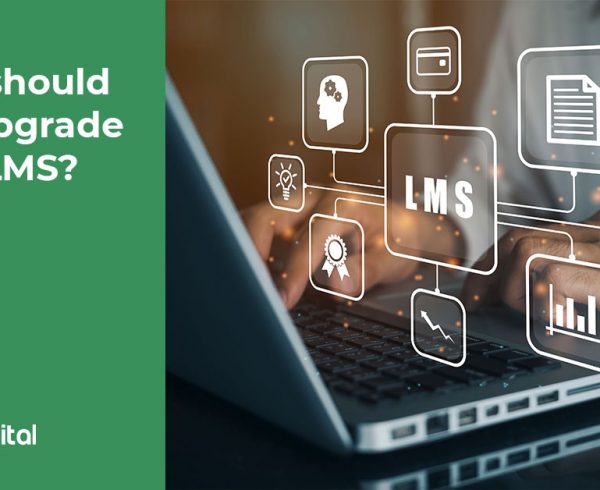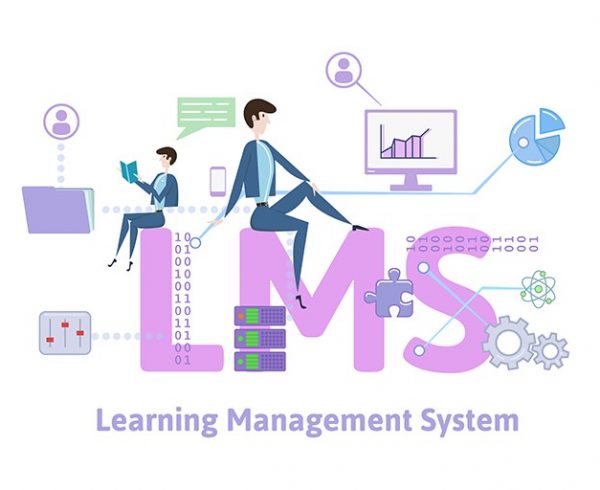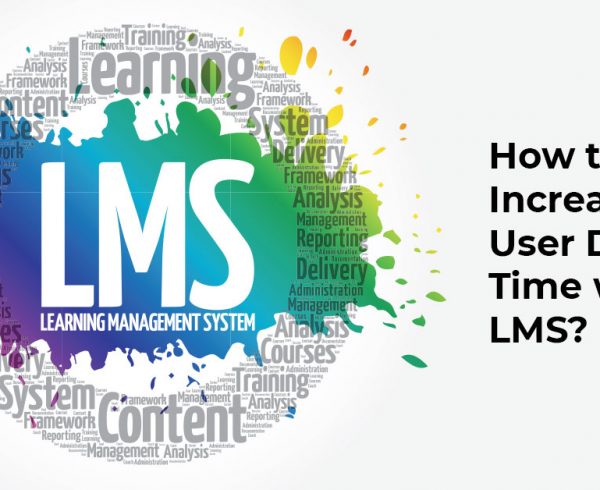Pushing for the adoption of a cost-effective, state-of-the-art, and the best learning management system (LMS) can help drive greater efficiency, inter-connectedness, and scalability to your operations.
As a small business, you run a tight operation with limited resources. However, this doesn’t mean you aren’t ambitious and looking to scale up.
But scaling can be a challenge, especially when you work with small teams. In all probability, your team members wear multiple hats, and even new members entering the ecosystem multi-task and contribute in dynamic ways.
As market challenges keep evolving and consumer expectations rise, your team needs to keep growing with new skills, knowledge building, and collaboration with internal and external stakeholders.
In this blog, let’s explore the defining characteristics of the best LMS for small businesses and the advantage it brings.
Table of Contents:
- How Does a Learning Management System Impact Your Business?
1. Access it from Anywhere
2. Create Fresh Content with Ease
3. Live Conference from Anywhere
4. Ease of Use
5. Access to Analytics
6. Integration with Multiple Tools
7. Potential to Scale
8. 24/7 Support - The Key Takeaways
How Does a Learning Management System Impact Your Business?
Today’s workplaces look very different from the ones we knew before 2020. The concept of a nine-to-five, six days a week, 100 % onsite workplace has given way to remote and hybrid teams that work flexibly and collaboratively.
This shift has especially benefitted small businesses, many of which are prioritizing remote working models because of the cost savings on rent, utilities, and labor.
In such a scenario, new-age small businesses can increase productivity, foster change management, and take projects to market faster by leveraging a digital learning platform for learning, communication, and collaboration. More transparency and accountability are the natural by-products.
1. Access it from Anywhere
Small businesses most likely work remotely. Bringing all team members onto the cloud through a unified LMS is a smart investment in building greater connectedness, operational efficiency, and improving collaboration.
Team members can access online learning resources in real-time through the platform, especially when they are stuck. Content can be presented in the form of video content, interactive content, audiobooks, collaborative assignments, webinars, and online lectures.
New team members and other stakeholders can be onboarded online. This means you can bring remote members from anywhere onto the platform in a streamlined manner.
Know more, How to Choose the Best LMS Platforms for Business?
2. Create Fresh Content with Ease
Helping your team upskill and expand their knowledge base is even more critical for smaller teams since they play multiple roles. It is easy to create and upload new online learning resources in minutes.
3. Live Conference from Anywhere
Team members can use the live conferencing utility to stream from anywhere. It could be for an in-house webinar, guest lecture, or expert training.
The design of the platform enables admins and other team members to organize things quickly, in a sophisticated manner, based on the nature of the activity.
4. Ease of Use
Adding and managing new users is a seamless experience for admins. This can include your sales, marketing, accounts, and other teams, as well as customers, clients, and vendors. Collaboration with multiple stakeholders is made simple and more outcome-driven.
5. Access to Analytics
Admins have access to a dashboard that offers valuable insights into user behavior. This includes how they are leveraging resources, responses to surveys and polls, and other interactive activities hosted online. A superior LMS also ensures data security.
6. Integration with Multiple Tools
Companies use multiple tools such as customer relationship management systems, communication tools, online store platforms, and content management services, which are easy to integrate with the new learning management system.
Integrations help small teams have a cohesive experience that increases productivity.
Here are 5-reasons-why-lms-fails-and-how-you-can-fix-them
7. Potential to Scale
Today many small businesses are pushing for the adoption of a learning management system because they see it as a stepping stone to scaling their business.
With technology and AI-based content intelligence on their side, they can bring on new users and stakeholders with ease, host global online conferences, and collaborate with teams around the world.
Small teams can dream big with a superior LMS at hand.
Read this, Does Your LMS Have These 7 Features?
8. 24/7 Support
Having round-the-clock support is essential, as it can help troubleshoot any problems with ease and in real-time. Ensure that your LMS partner has a hands-on approach and can help you resolve any roadblocks quickly.
The Key Takeaways
Today, small teams from every sector – creative, financial services, consumer tech, retail – are adopting a robust learning management system. This is now considered a best practice for any thriving, ambitious business.
An LMS automates several processes, brings in a data-driven approach, and also frees up space for business owners and teams to focus on their core business.
Choosing a cost-effective LMS is a great investment in the future of your business and your team members, provided you identify the right LMS platform provider.
If your small business is looking to adopt a state-of-the-art LMS and endow your team with the tools for success, Hurix Digital is geared to support you in meeting all your LMS needs. We provide you with the best LMS for small businesses.
Our LMS is available both as a licensed version (one-time buy) and via a subscription model. Get in touch with us to start a conversation and leverage the best LMS for small business.
Read more, How-lms-is-making-online-learning-easier-than-ever











